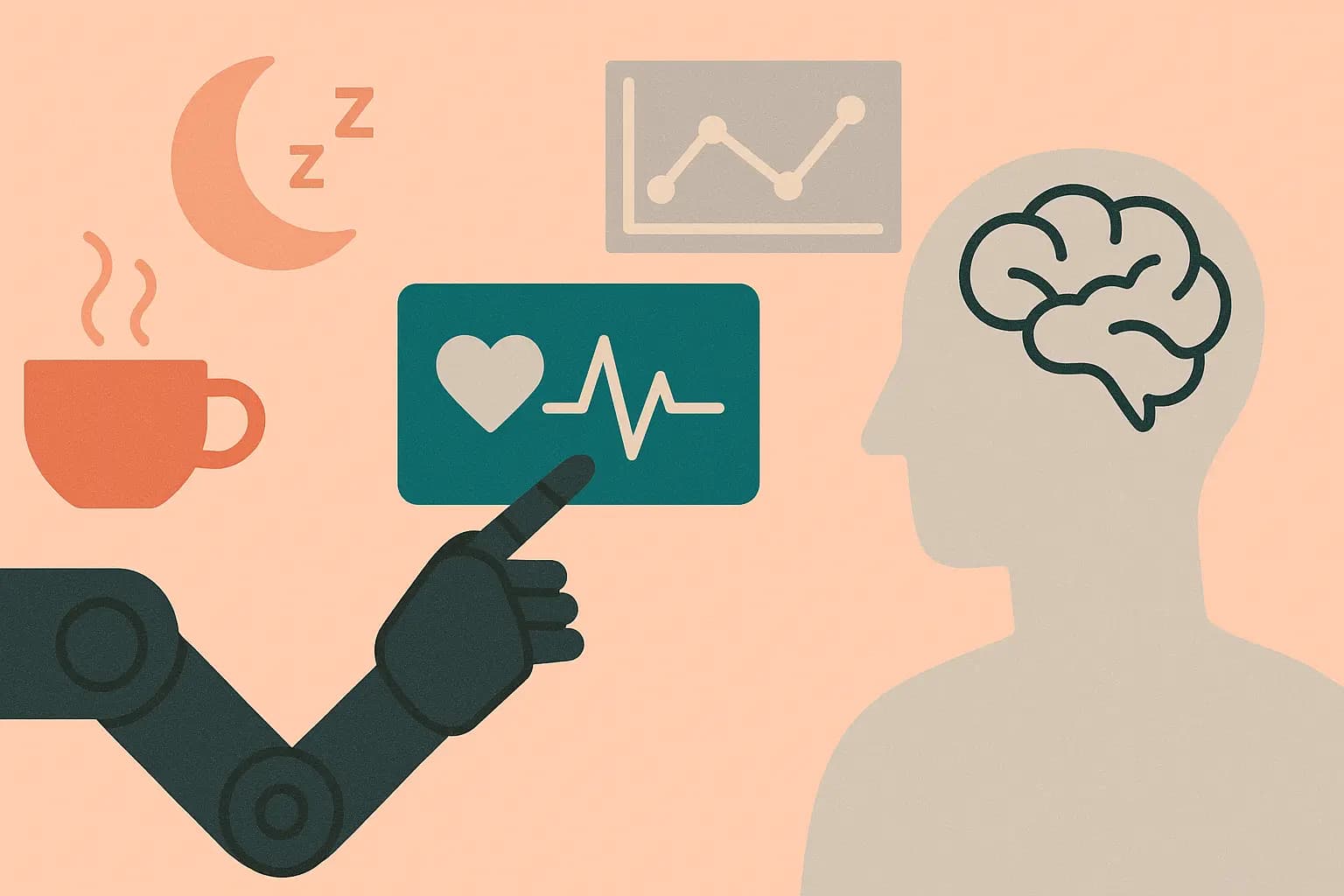Coffee, Cortisol, Computers, & Catching Zzz's
Michaela Murphy
Jun 18, 2025

Healthcare Monitoring & Predictive Outcomes with AI: Uncovering Variable Relationships & Predicting Treatment Outcomes
Lying awake at an unreasonable hour, your brain choosing anything and everything to fixate on while the world is silent. Your body is tired, but your mind persists replaying the day’s decisions as you continue to contemplate why on earth you're wide awake, missing out on your much needed REM refresh.
Was the culprit the extra espresso you swore you needed to power you through the 2pm slump? Maybe your phone lured you into just a few (many) more scrolls, pushing your screen time into your bedtime. There’s that new project buzzing in the back of your head adding a bit more stress to your work day, or maybe it was the killer SoulCycle class that’s left your nervous system firing on all cylinders. Or, for some, this might be the familiar pattern of insomnia. Whatever the reason, it’s a fate we have all experienced, and will continue to encounter.
A sleepless night for Andre Franca, CTO, naturally inspired him to test our platform to dig deeper into the patterns behind the struggle to fall asleep.
What causes them? Can we trace the connections? How could our coffee habits, workout intensity, mental stress, quietly be shaping our sleep latency?
To investigate, we decided to explore a synthetic data set (Thank you Chat-GPT) of common real-life factors that may be impacting sleep latency, to test the process of building data-backed insights and explore the relationship between these factors and the time it takes to fall asleep.
Our approach was simple: How does caffeine, stress, and screens affect the time it takes to fall asleep?
After uploading the data set, we began with evaluating all the variables and adding domain expertise knowledge. As none of the team are experts on insomnia, we integrated findings from external scientific literature and AI generated domain expertise from related research to add supplementary findings to strengthen the context to how these variables are connected; the scope of sleep latency, led us to add research on the effects of coffee consumption on cortisol levels and stress responses, as well as a study on circadian rhythm disruption on sleep quality and cortisol regulation. We then systematically explored the relationships between these individual variables and final sleep outcomes manually, with the consideration to automatically prescribed relationships based on the previously added domain expertise, to investigate the level in which caffeine or cortisol exert a direct influence on sleep onset, or whether their effects manifest in inverse/ non-linear ways at varying levels of exposure.
This is only one of the many use objectives we currently exploring at Ergodic to better identify and interpret the root causes of process relationships, as well as subsequent effects. Specifically across the healthcare and biotechnology industries, our goal is to continue developing the platform to prove indispensable for scientists and healthcare professionals in isolating complex, interrelated factors and assessing the strength and reliability of their influence on specific health interventions or effect of heterogeneous effects. We believe this is especially critical in healthcare, as accurately understanding the multifactorial nature of health outcomes is essential for evaluating disease progression, tailoring treatments, and improving therapeutic interventions. Individual behaviors, environmental exposures, genetic variability, and personal medical history all have varying contributions on disease proliferation and health outcomes. Traditionally, these factors are assessed through clinical observation, robust background history, physician expertise, and referral-based diagnostics; all proven and valuable methods, yet can introduce delays and subjectivity, which can be particularly limiting in cases of rapid disease progression or time-sensitive diagnostics. Furthermore, these traditional approaches may also lack the granularity required to quantify subtle, yet impactful, influences, leading to difficulty uncovering latent patterns.
By synthesizing various data types and inclusion of supplementary research, we are aiming to build the Ergodic platform to support more nuanced, data-informed decision-making in both clinical and research settings.
If you have a use case you are currently working on and would like to explore how the Ergodic platform could accelerate your work, reach out to Michaela Murphy or email michaela@ergodic.ai